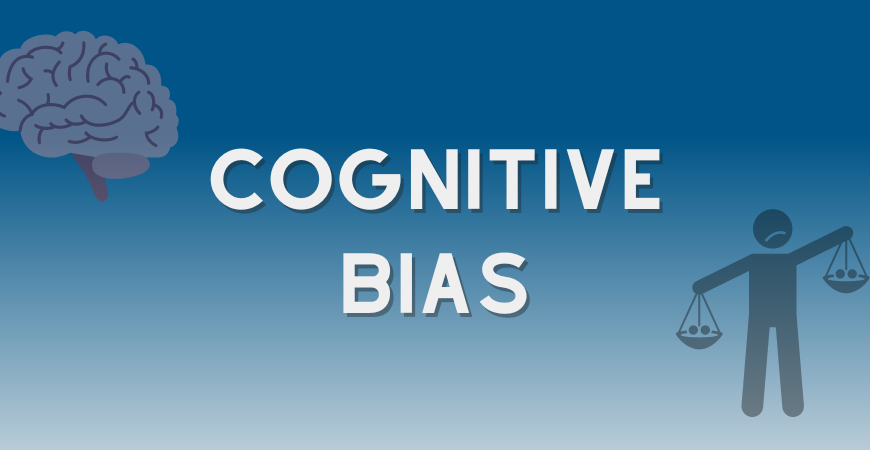
Saving money is difficult. Our difficulty in saving money can be blamed on our habits, overspending and the lack of a clear cut budget. However, a lot fail to note that our brain may actually be at fault.
…..Our Brain?
Yes! Your brain might be the reason you are having trouble saving or sticking to your budget. You may be experiencing cognitive biases. Cognitive biases can be defined as different ways in which our perception, judgment or decision making can be influenced unconsciously.
Cognitive biases are a result of the environment we surround yourself with. Changing your environment or simply being more aware can have a great impact.
How Exactly Does My Brain Keep Me From Saving?
You may be asking, how exactly does my brain make it difficult for me to save? Well, there are many different situations in which cognitive biases could be into play. Have you ever walked into Target and headed straight to the Bullseye playground section ($1/$5 section)? 10 minutes later, you find yourself putting a couple items into your cart, items that you don't necessarily need but are too much of a steal to pass up. Or how about going on your daily starbucks run before work? All of these frequent purchases add up in the long run and are an example of Present Bias. Present bias is the tendency of people to give stronger weight to payoffs that are closer to time rather than those in the future. Essentially, the preference to get things ‘now’ rather than ‘later’. This does not mean that you should cut off your Starbucks runs completely or never step foot in the Bullseye playground ever again. It simply means that it is important to be aware that we are naturally biased to spend money to get things now, rather than invest it to get something in the future.
Have you ever set your mind to something and then see a ‘sign’ and it sort of reinforces your idea? For example, you could have seen a TikTok or IG post about investing your money and saving up for retirement. However, you may find yourself hesitant and not too convinced. Later, you might see something online or on TV about the market falling or it not being a good time to invest. Rather than researching further, you take this as a sign and decide to not invest. This event can be described as Confirmation Bias. Confirmation bias prompts us to seek information that aligns with our pre-existing ideas, unconsciously being selective about which information we choose to focus on.
Like I previously mentioned, your environment triggers certain cognitive biases. For example, let’s say you set up a one on one meeting with the Financial Wellness Center, set up a budget and are determined to finally start saving towards your emergency fund. However, your friends invite you out to dinner and you don’t want to miss out, all of your friends are going to be there, so you go. Later that week, you are invited on a weekend trip with your friends. The trip sounds like so much fun and you really don’t want to miss out on this experience, so once again you decide to join. On the trip you notice that your friends might not be as mindful of saving as you are, so you decide to push back your savings plan to be able to keep up with your friends. This situation can be described as Herding Bias. Herding bias is the tendency to follow the crowd and their ideas/practices. Fear of missing out (FOMO) may also be a result of herding bias, the fear of not being included or present when something fun or exciting is happening or set to happen.
What Can I Do?
Cognitive biases aren't anything that can't be overcome, there are many ways in which you can bridge the gap between intentions and actions. The first and most crucial thing to do is to be aware, this way your spending habits will be more deliberate, being able to identify cognitive biases and not fall victim to them.
It will also help to make plans. Consider setting up automatic transfers to your savings account. This way, the money that is deposited into your account never sees you or your checking account, making sure it is not at risk of any cognitive bias such as present bias. In addition, you could set up monthly or biweekly meetings with yourself to go through your expenses, increasing the transparency of your spending. This will help you know what areas you may be overspending in and what areas you are on track with.
Something I believe is very useful to use transition moments to your advantage. Transition moments can be something as the start of a new year, your birthday, or even the start of a new season. These are times in which your motivation to act increases. Cognitive biases aren’t anything to be afraid of, as long as you are aware and informed you will be alright.
Author:
 Melissa Rodriguez
Melissa Rodriguez
Bobcat Financial Coach
Melissa is a Bobcat Financial Coach alumna at the University of California, Merced. Read more about her here!








